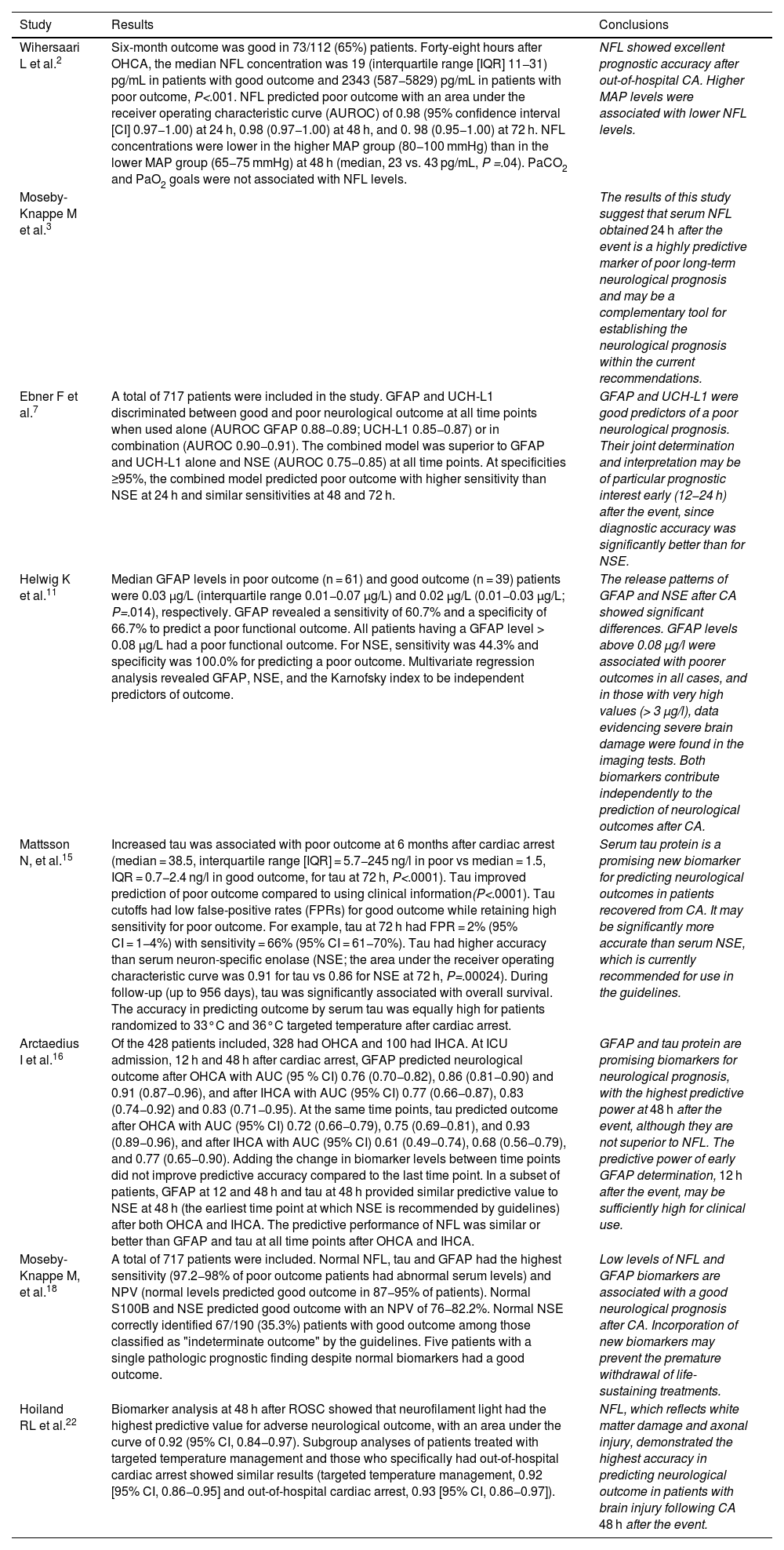
Edited by: Juan Antonio Llompart-Pou - Specialist in Intensive Care Medicine, Doctorate in Health Sciences, Universitat Illes Balears. Department of Intensive Care Medicine, Trauma and Neurocritical ICU, Hospital Universitari Son Espases. Palma, Spain
Last update: November 2025
More infoNeurological prognosis of patients recovered from a cardiac arrest remains a challenge for Intensive Medicine specialists. Given the complexity of this scenario and the ensuing ethical dilemmas, current guidelines from the major scientific societies recommend a multimodal prognostic model for patients recovered from cardiac arrest. This model combines several clinical parameters, neurophysiological studies, such as electroencephalogram and somatosensory evoked potentials, and neuroimaging studies such as computed tomography scan and magnetic resonance imaging, as well as biomarkers for brain injury. More recently, several biomarkers associated with brain injury, originating from different regions of the brain, have been identified as potential prognostication tools within a multimodal approach. Based on the preliminary evidence gathered around them, several novel and promising biomarkers have been put forward. This literature review aims to examine four of them: ubiquitin carboxy-terminal hydrolase L1, glial fibrillary acidic protein, neurofilament light and tau protein.
El pronóstico neurológico de los pacientes recuperados tras una parada cardiorrespiratoria presenta un reto para el especialista en Medicina Intensiva. Dada la complicada naturaleza de este escenario y los conflictos éticos que genera, las recomendaciones actuales de las principales sociedades científicas sobre la atención del paciente recuperado de una parada cardiorrespiratoria recomiendan el uso de un modelo pronóstico multimodal. Para ello se emplea una combinación de parámetros clínicos, estudios neurofisiológicos como el electroencefalograma y los potenciales evocados somatosensoriales y estudios de neuroimagen como la tomografía computarizada y la resonancia magnética nuclear, así como biomarcadores de lesión cerebral. En los últimos años, varios biomarcadores de lesión cerebral originados en partes diferentes del cerebro han sido identificados como potenciales herramientas de valor pronóstico, dentro de una aproximación multimodal. Se han propuesto varios biomarcadores novedosos y prometedores alrededor de los cuales está surgiendo una evidencia preliminar. En esta revisión narrativa se pretende examinar cuatro de ellos: la ubiquitina carboxiterminal hidrolasa L1, la proteína ácida fibrilar de la glía, los neurofilamentos ligeros, y la proteína tau.
Article
Go to the members area of the website of the SEMICYUC (www.semicyuc.org )and click the link to the magazine.





